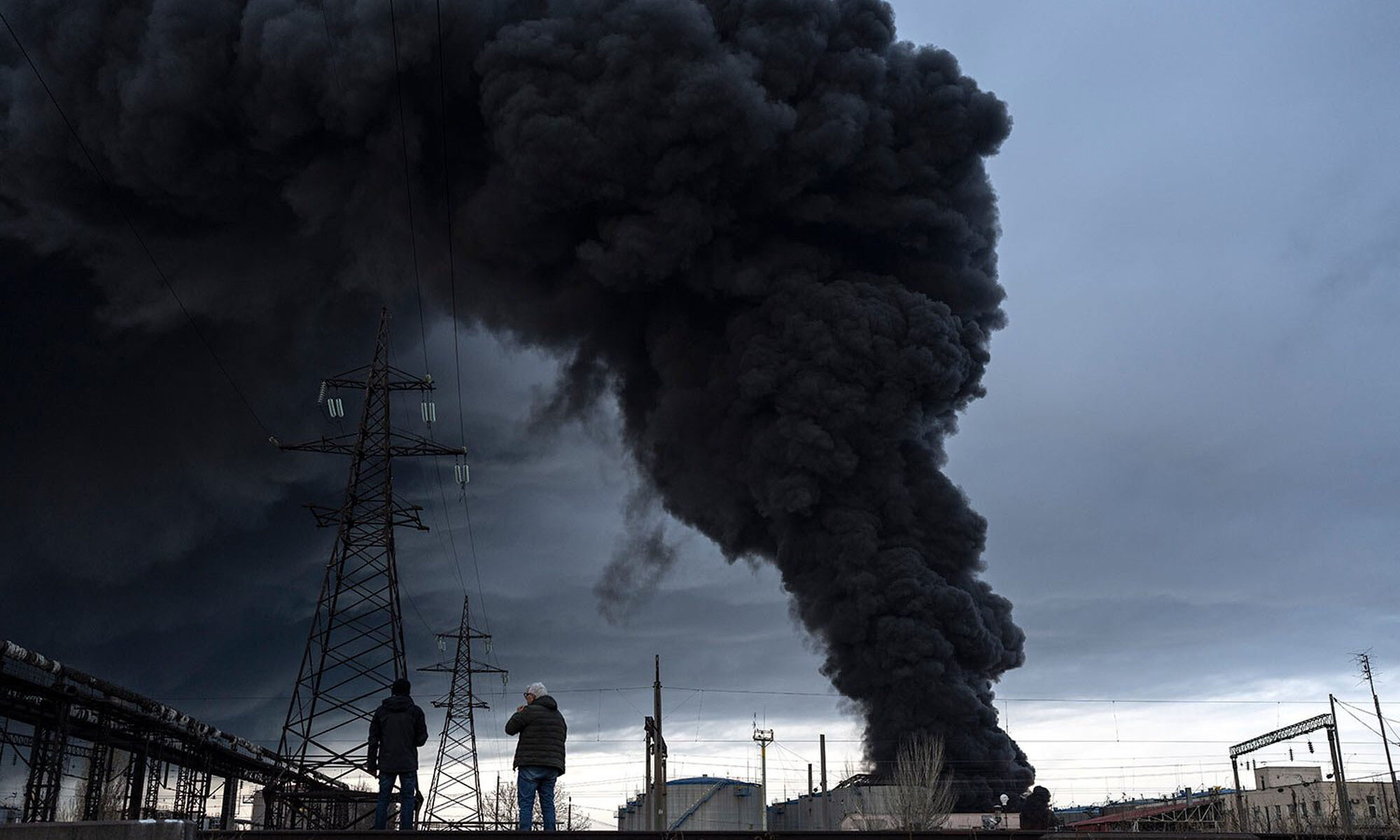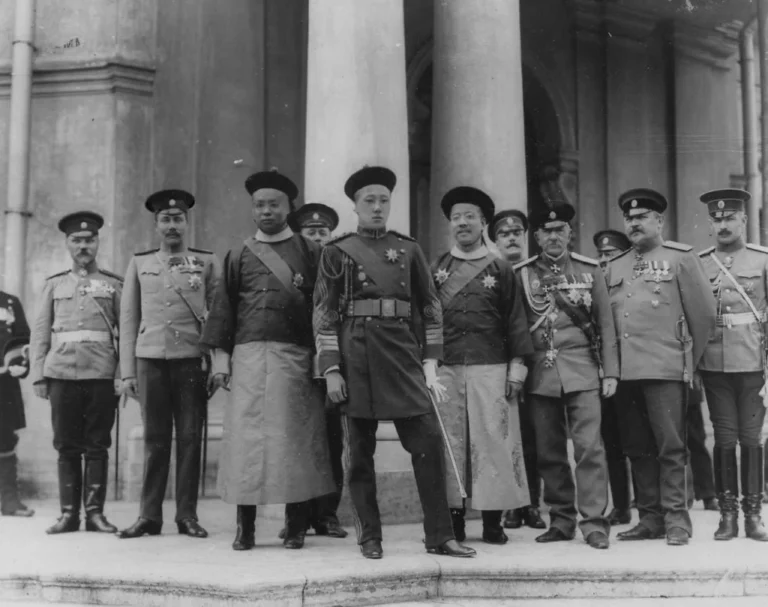
Russia’s withdrawal from the Black Sea Grain Initiative, the shelling of the port infrastructure, and the city Odesa that damaged China’s consulate have once again cast doubt on Ukraine’s hopes that China will play a constructive role in ending the war.
The Grain Deal and China
As a result of the shelling of the port terminal in Chornomorsk by Russia on the night of July 19, 60,000 tons of grain were destroyed. President Volodymyr Zelenskyy said this grain was destined for China. Overall, China was the main recipient of Ukrainian exports within the grain initiative as almost a third of the total cargo transported along the sea corridor was exported to China.
The Ukrainian authorities were convinced that China’s stake in the process should prevent the Russian withdrawal from the grain agreement, but these expectations failed. Despite Beijing’s official statement of support for the Black Sea Grain Initiative, it did not stop Russia from scrapping the deal. Moreover, over the next few days, Russian attacks purposefully destroyed port infrastructure, grain warehouses, and agricultural enterprises in order to inflict maximum damage on Ukrainian food exports. The Kremlin also threatened to attack merchant ships in the Black Sea bound for Ukrainian ports.
However, so far China has only issued a statement it hopes the parties would resolve the issue of international food security through dialogue and consultations. Chinese Foreign Ministry Spokesperson, Mao Ning, also stated that China was ready to step up communication and cooperation to facilitate more international common understanding and contribute to world food security.
During a UN Security Council meeting, China’s Deputy Permanent Representative Geng Shuang underlined the importance of the Black Sea grain deal for global food security. China stated that it hoped the parties concerned would work together with the relevant UN agencies and resume the export of grain and fertilizer from Russia (this is one of the Russian demands) and Ukraine at an early date.
The shelling of the Ukrainian ports coincided with the intergovernmental meeting of the Subcommittee on Trade and Economic Cooperation led by the Deputy Minister of Economy of Ukraine, Taras Kachka, and Deputy Minister of Commerce of China, Ling Ji, which took place in Beijing. This was the first high-level visit from Ukraine to China since the Russian full-scale invasion.
Apparently, the main goal of the Ukrainian delegation was to convince the Chinese government to influence the Kremlin to stick to the grain agreement. According to the results of the meeting, Lin Ji emphasized that China was ready to expand the import of high-quality products from Ukraine, explore a feasibility study on trade liberalization and expand the trade and investment cooperation. At the same time, the Chinese side also stressed that Ukraine has to guarantee the safety of personnel and property of Chinese-funded enterprises in Ukraine and protect their legitimate rights and interests.
However, all these statements look rather vague, as they do not tackle the main conditions for solving the problem: without Russia unblocking Ukrainian ports, the prospects for the development of trade and economic relations have significant limitations, and the safety of any business and enterprises cannot be guaranteed until Russia stops shelling them. China continues to ignore this fact and avoids criticizing Russia for its destructive actions on the territory of Ukraine, even if it concerns its immediate interests.
One of the most vivid examples in this regard was the weak reaction of the Chinese Foreign Ministry to the damage to the premises of the Consulate General in Odesa during a Russian air attack on the city. The official statement said that the building was currently not in use and no people were injured, and the Chinese side was “closely monitoring the development of events, will continue to maintain contact with interested parties and take all measures to guarantee the safety of Chinese institutions and personnel in Ukraine.”
This response stands in stark contrast to China’s aggressive diplomacy towards the West. Beijing still reminds Washington of the bombing of its embassy in Belgrade by NATO. May 7, when the attack took place in 1999, even turned into a commemorative day used by the Chinese authorities to further criticize the US and inflame anti-American sentiments in society.
There is а reason to believe that China is not ready to abandon its strategy of covert support for Russia, even if the actions of the Russian authorities create more problems for Beijing.
Kyiv’s Failure to Leverage Chinese ‘Neutrality’
From the beginning of the war, the government in Kyiv has tried to convince Beijing to side with Ukraine. The bet was based on the assumption of Beijing’s pragmatic approach, as the war brings negative, primarily economic, consequences for China. This position demonstrates the limited understanding on the part of the Ukrainian political community of the real strategic goals of China, which go beyond economic interests.
Hopes that the direct dialogue with Xi Jinping, which President Zelenskyy so longed for, would help influence China’s position, turned out to be in vain. Moreover, the 12-point peace proposal introduced by Beijing in February and the subsequent visit of the Special Representative for Eurasian Affairs, Li Hui, in May revealed differences in the understanding of how to achieve peace in Ukraine. China’s reluctance to distinguish between the aggressor and the attacked party, as well as its calls for dialogue and negotiations without the withdrawal of Russian troops from Ukrainian territory, have only played into Moscow’s hands.
The Minister of Foreign Affairs of Ukraine, Dmytro Kuleba, during his speech at the open debate of the UN General Assembly “Situation in the temporarily occupied territories of Ukraine” on July 18, called on the member states of the UN to stop pretending to be neutral, because there is no place for neutrality in a situation of genocidal war and mass atrocities.
In his address, Kuleba criticized “absurd calls for abstract peace.” While Ukraine is exercising its right to self-defense under Article 51 of the UN Charter, some countries are putting forward proposals to “sit at the negotiating table,” “not to prolong the war,” or even criticize the provision of military aid to Ukraine. The minister noted that such calls only serve Russia’s interests, and invited the UN member states to join the G7 declaration on security guarantees for Ukraine.
Reading between the lines of the Ukrainian minister’s speech, it is safe to assume that one of the indented addressees was China. Ukrainian diplomacy is trying to encourage Beijing to use its influence on Moscow to end the war and leaves it a window of opportunity for mediation, in particular as regards reducing the risks of nuclear escalation and unblocking the grain initiative. Now is the time when it will become clear whether the Chinese government is willing to take active measures to return Russia to the grain agreement or continue to stand aside.
Meanwhile, unlike the Ukrainian government, which has maintained “strategic tolerance” towards China, Ukrainian society is developing a critical attitude towards the country. According to statistical data, Ukrainians’ views of China have become more negative: while in October 2022, 63 percent of Ukrainians considered China to have a neutral position towards Ukraine and 18 percent saw it as a hostile country, at the beginning of the summer of 2023, 52 percent considered it neutral, and 34 percent hostile. Also, only 8.7 percent of Ukrainians would like to see China as a mediator in negotiations with Russia, while, for example, it is 43.7 percent for the US.
The behavior of Beijing and its rapprochement with Russia have called into question the appropriateness of the status of “strategic partner of Ukraine.” Oleksandr Merezhko, the head of the parliamentary committee on foreign policy of Ukraine, has repeatedly called for a review of the status of the relationship with China, a position that is shared by many Ukrainian experts and politicians.
However, the presidential office refrains from taking drastic steps that could spoil relations with Beijing. This is largely due to fears that Beijing will begin to openly aid Russia and supply it with weapons. In addition, among some Ukrainian high-ranking officials, there are still supporters of the ‘economic pie’ strategy towards China, who hope to appease it with trade and investment prospects and participation in post-war reconstruction.
Need for a ‘New Look’ on China
The Russian-Ukrainian war has become a test of relations between Kyiv and Beijing. China insists on its own vision of a ‘constructive role’ in promoting de-escalation and peace in Ukraine. Ultimately, China’s position is dictated by its own interest to use the conflict to strengthen its own geopolitical standing in which Russia plays the role of an ally in the fight against the “unilateral hegemony of the West.” For this reason, China is not interested in the military defeat of Moscow, as it would strengthen the position of the collective West.
The strengthening of Sino-Russian relations, which began after 2014 and grew during the full-scale war over the past year, requires the Ukrainian authorities to review the strategy of relations with China, in accordance with the policies of the EU and NATO. Kyiv has already faced problems of improper screening of investments, as a result of which China tried to take over the strategically important enterprise of “Motor Sich” (manufacturer of engines for airplanes and helicopters) before the war. Ukraine must take steps to prevent similar situations from happening in the future.
Likewise, the post-war economic recovery and the reconstruction of Ukraine must take into account the security risks and avoid trade and economic dependence on China, which could become a tool of pressure in achieving political and strategic goals.
Written by
Nataliya Butyrska
Nataliya Butyrska is an independent expert on East Asia. She is an author of more than 100 analytical articles and reports on the issues of international relations with a special focus on the Indo-Pacific region and Ukraine's relations with Asian countries.


